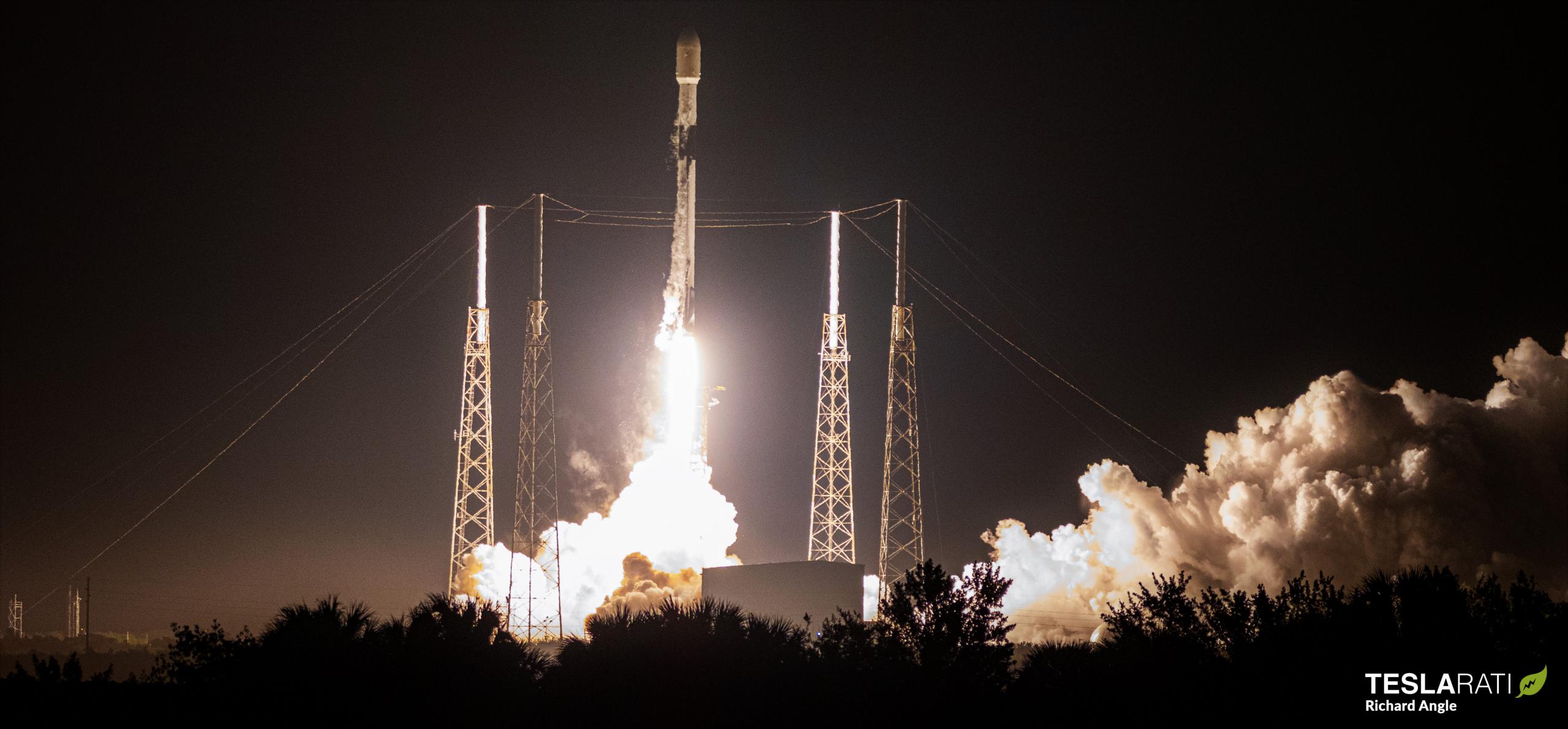Just after midnight at 12:07 am ET (05:07 UTC), 23 V2 mini Starlink satellites were lofted into space from Space Launch Complex 40 at Cape Canaveral Space Force Station in Florida.
The Falcon 9 with the Group 6-33 Starlink satellites launched to the Southeast to insert them into the same 43-degree orbital inclination as previous Group 6 missions.
Liftoff! pic.twitter.com/iBETMTpR7m
— SpaceX (@SpaceX) December 7, 2023
As with the recent prior missions for Group 6, the satellites deployed from the 2nd stage just over an hour after lift-off, with this launch, 5,559 Starlinks have been launched into orbit since 2018, including the first two prototypes, Tintin A and B. Of those, 4,530 are in their operational orbits, with more joining the ranks as they undergo their checkouts and raise themselves to the proper orbits. Of these 4,530, 327 are the V2 mini variant capable of handling ~4x more bandwidth than the older generation, according to Jonathan McDowell’s Starlink statistics site.
The Falcon 9 that was assigned to this mission was Booster 1077, which took a trip to space and back for the 9th time. B1077 last launched 37 days ago and has now launched 4 Starlink missions, Crew 5 and CRS-28 to the ISS, and 3 communications satellites. The Falcon 9 made a soft touchdown on the droneship “Just Read the Instructions” following its portion of the mission.
This was also a pretty rapid turnaround for SLC 40, with it being just over 4 days since the last launch. The current record for SLC 40 is 3 days and 22 hours between launches.
Falcon 9’s first stage has landed on the Just Read the Instructions droneship pic.twitter.com/VG7Vbkzhes
— SpaceX (@SpaceX) December 7, 2023
If SpaceX is able to get their launch pad turnaround time between launches down even a bit, that will not only help them accomplish their goal of 100 launches this year but also put them in a position to exceed that in 2024. While the pad turnaround time is definitely something the SpaceX ground team is capable of, they are still a bit limited when it comes to recovering boosters as the wait for a Falcon 9 to return on a droneship is around 3 days with good weather and it takes a few days for the droneships to return back to landing areas in the Atlantic or Pacific ocean. If SpaceX is able to further utilize the return to launch site capability of the Falcon, that will put them in a much better position to far exceed 100 launches next year.
Next up for SpaceX is another early morning launch, this time a Starlink mission no earlier than December 8th at 12 am PT (08:00 UTC), and the Falcon Heavy is still targeting the evening of December 10th.
Questions or comments? Shoot me an email at rangle@teslarati.com, or Tweet me @RDAnglePhoto.


